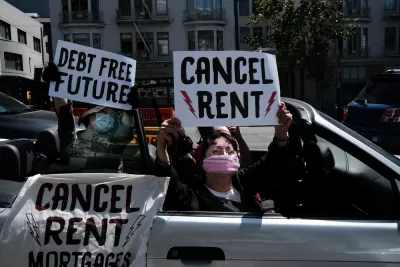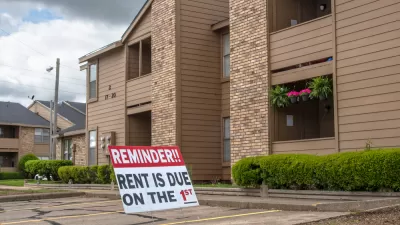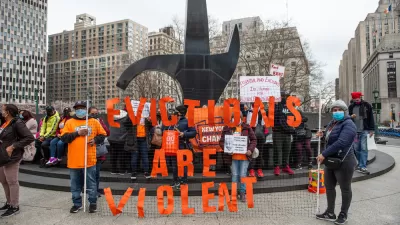A new survey reveals details about the financial crunch facing owners of small rental properties as tenants struggle to pay rent during the pandemic and emergency aid is slow to reach those in need.

A study written by Dr. Nathaniel Decker and published recently by the Terner Center for Housing Innovation at UC Berkeley measures the impact of the pandemic on landlords and tenants on small rental properties (i.e., one- to four-unit properties).
About half of U.S. renters live in small properties, according to the article, and most of those properties are owned by non-professional landlords. "Despite their prevalence, very little data are available on this segment of the housing market, which has made it difficult to understand how small rental property owners and tenants have fared over the past year," according to the article.
To fill that research gap, Decker collected survey responses from 1,690 rental property owners and managers in mid-sized U.S. metropolitan areas.
The study shows that the economic consequences of the pandemic have been deeply uneven. Respondents reported that more than 1 in 5 tenants fell behind on rent during the pandemic, with lower-income and Black tenants hardest hit by shortfalls. Overall, about 1 in 3 small rental property owners reported revenue declines in 2020, but shares climbed even higher for owners of 6 to 10 units or more and for landlords of color.
While many tenants missed rent only temporarily and have since become current, about 15% had severe delinquencies of 6 or months. The median arrears owed by tenants was about $2,200, but estimated back rents were wide ranging, with some tenants owing $4,000 or more.
The survey results also identified an "emerging and troubling" trend in the increased sale of small rental properties, which could have long-term consequences for the nation's supply of low-cost properties in high-opportunity neighborhoods.
Finally, the study suggests that emergency rent relief efforts will have to be more effective to deliver on their potential to stabilize rental housing markets in the United States.
FULL STORY: The Uneven Impact of the Pandemic on the Tenants and Owners of Small Rental Properties

Alabama: Trump Terminates Settlements for Black Communities Harmed By Raw Sewage
Trump deemed the landmark civil rights agreement “illegal DEI and environmental justice policy.”

Study: Maui’s Plan to Convert Vacation Rentals to Long-Term Housing Could Cause Nearly $1 Billion Economic Loss
The plan would reduce visitor accommodation by 25% resulting in 1,900 jobs lost.

Planetizen Federal Action Tracker
A weekly monitor of how Trump’s orders and actions are impacting planners and planning in America.

Federal Homelessness Agency Places Entire Staff on Leave
The U.S. Interagency Council on Homelessness is the only federal agency dedicated to preventing and ending homelessness.

Restoring Northern India’s Himalayan ‘Water Temples’
Thousands of centuries-old buildings protect the region’s natural springs and serve as community wells and gathering places.

Milwaukee to Double Bike Share Stations
Bublr Bikes, one of the nation’s most successful, will add 500 new e-bikes to its system.
Urban Design for Planners 1: Software Tools
This six-course series explores essential urban design concepts using open source software and equips planners with the tools they need to participate fully in the urban design process.
Planning for Universal Design
Learn the tools for implementing Universal Design in planning regulations.
Caltrans
Smith Gee Studio
Institute for Housing and Urban Development Studies (IHS)
City of Grandview
Harvard GSD Executive Education
Toledo-Lucas County Plan Commissions
Salt Lake City
NYU Wagner Graduate School of Public Service




























